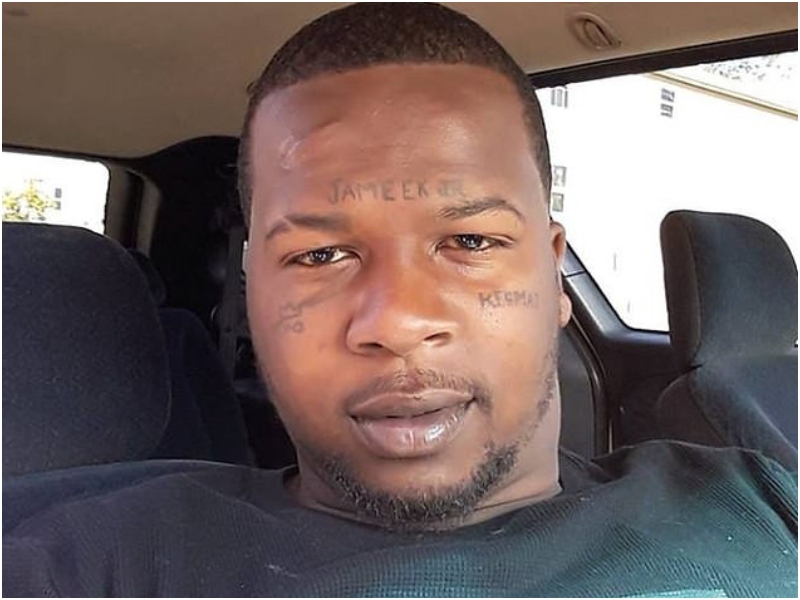A recent investigative report has uncovered startling revelations surrounding the death of Jameek Lowery in Paterson, New Jersey.
The report sheds new light on the circumstances surrounding Lowery’s tragic demise.
Initially attributed to cardiac arrest and kidney failure, Lowery’s death sparked widespread outrage and protests, as community members and activists demanded justice for his untimely passing.
Lowery, who was experiencing a mental health crisis, had sought help at a local police station, documenting his distress on social media.
However, instead of receiving assistance, he was forcefully restrained and subjected to physical violence by officers.
Despite his pleas for help, Lowery tragically passed away two days later, prompting questions about the role of law enforcement in his death.
While officials initially claimed that Lowery’s death was due to a medical event, a secondary autopsy conducted by Dr. Michael Baden revealed evidence of blunt force trauma and choking inflicted by police officers, reports the Associated Press.
These findings have raised serious concerns about the conduct of law enforcement personnel and have highlighted broader issues of police brutality and systemic racism within the Paterson Police Department.
The revelation of these findings has reignited calls for accountability and reform within the department, as community members and activists continue to demand justice for Lowery and others who have been victims of police violence.
The external audit also uncovered significant disparities in police encounters, particularly affecting Black residents, further underscoring the urgent need for systemic change.
Lowery’s family remains steadfast in their quest for justice, while activists are advocating for tangible reforms to address the entrenched culture of impunity within law enforcement.
Lowery’s tragic death is a poignant reminder of the pressing need for police accountability and racial equity in America.
Legal Steps Lowery’s Family Could Pursue
Lowery’s family could pursue several legal avenues in seeking accountability for his death and advocating for justice:
Civil Lawsuit: Lowery’s family could file a civil lawsuit against the Paterson Police Department, individual officers involved in the incident, and potentially other relevant parties. This lawsuit could seek damages for wrongful death, excessive use of force, and violations of Lowery’s civil rights. Through this legal action, the family could hold accountable those responsible for Lowery’s death and seek financial compensation for their loss.
Criminal Complaint: If the evidence suggests criminal wrongdoing by the officers involved, Lowery’s family could pursue criminal charges against them. This may involve filing a complaint with the local prosecutor’s office, which would then conduct an investigation into the incident and determine whether criminal charges are warranted. Criminal charges could include manslaughter, assault, or other related offenses.
Complaint to Oversight Agencies: Lowery’s family could file a complaint with external oversight agencies responsible for monitoring police conduct, such as the Department of Justice’s Civil Rights Division or the New Jersey Attorney General’s Office. These agencies have the authority to investigate allegations of police misconduct and take corrective action if violations are found.
Overall, Lowery’s family has several legal options available to them in their quest for accountability and justice following his tragic death at the hands of law enforcement officers.
These steps may help shed light on the circumstances surrounding his death, hold responsible parties accountable, and advocate for meaningful reforms to prevent similar incidents in the future.

